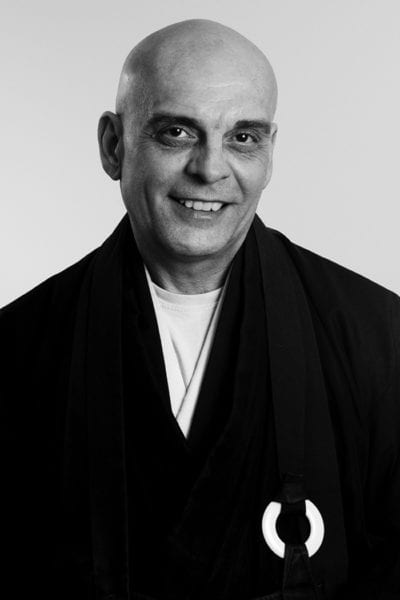
Seido was faculty advisor and teacher for the University of Missouri Buddhist Association (MUBA) from 2002 until 2019. Students met once a week for zazen and Dharma teachings and did voluntary community service at The Boys and Girls Club Association one day a week. Seido won the MU Chancellor’s Award for Excellence in Education for his work with MUBA. Upon Seido’s retirement from the University of Missouri, MUBA had to shut down for lack of a faculty advisor.
While an English professor at MU, Seido won a total of 4 teaching awards, including the prestigious Kemper Award. Among the many courses he taught was a course on The Wisdom Literature of the Silk Roads. Among the books covered were: Gilgamesh, the Bhagavad Gita, the Tao Te Ching, the Analects of Confucius, the Zen Teaching of Bodhidharma, The Ceasing of Notions: Early Zen Texts from the Dunhuang Caves, the Meditations of Marcus Aurelius, Enchiridion by Epictetus, Musonius Rufus, The Essential Poems of Rumi. (Various other texts were added or removed depending on enrollment and time).
Seido also taught a course called “Buddha and The Beats” about Buddhism’s influence on the so-called Beat Generation. This course also covered teachings by Chogyam Trungpa Rinpoche, Seung Sahn Soen Sa Nim and Suzuki Roshi.
Seido’s book of poems, The Skeleton of the Crow: New & Selected Poems 1978 — 2008, won the PEN Center USA Award for poetry in 2009.
Interviews with Seido
- No Words: Zen poetry is everything you might expect it to be, and less. An interview with Seido Ray Ronci (Tricycle Magazine, 2009)
- Q&A: A conversation with Seido Ray Ronci (Vox Magazine, 2016)
- Rinzai Zen Buddhism with Seido Ray Ronci (The Classical Ideas Podcast, 2017)
Personal Statement
I was born and raised in Cranston, Rhode Island in a somewhat traditional Catholic Italian family. I attended Catholic school for 12 years and was Valedictorian of the 100th graduating class of La Salle Academy. It was in my religion classes at La Salle that I first learned about Buddhism. Throughout high school and my undergraduate years in college I read many books about Buddhism, but especially Zen. The Zen teachings resonated with me deeply.
After graduating from college in 1976 I moved to Boulder, Colorado where I heard teachings by Trungpa Rinpoche at the Naropa Institute. I also discovered the Boulder Zen Center, which was run by an ordained student of Seung Sahn Soen Sa Nim. Later, that same student would be ordained again by Joshu Sasaki Roshi and given the name Gento. It was through him and the Boulder Zen Center that I first heard Joshu Roshi give a talk. It was in Boulder that I had my first sanzen with Roshi. That following summer, I attended my first summer seichu at Mt. Baldy Zen Center in California.
I attended about 4 or 5 summer seichus in a row when I asked Roshi if I should stay and become a monk. He said that I could stay, and I was relieved; but almost immediately he said, “Or, you can go.” I was confused by this answer, so I asked Tekio, a jikijistu at the time. He agreed that it was unusual for Roshi to give the choice. It seemed to me that doing formal training in the summer, and working during the year as a teacher, was the right course of practice for me, so once again I left.
Over the years that followed, I came and went from Mt. Baldy numerous times — training for the summer, teaching during the academic year. After about 20 years of practice, Roshi said that it was time to become a monk and open a Zen Center. So, in 2000 and 2001, I did as I was told — was ordained, and opened Hokoku-An Zendo, named by Roshi: the name means “Valley-treasure-hermitage.”
I recently retired from teaching, but regular practice at Hokoku-An Zendo continues. Among the many people who have practiced at Hokoku-An Zendo, at least 9 students have attended sesshin at Mt. Baldy or Bodhi Manda (or both) over the years.